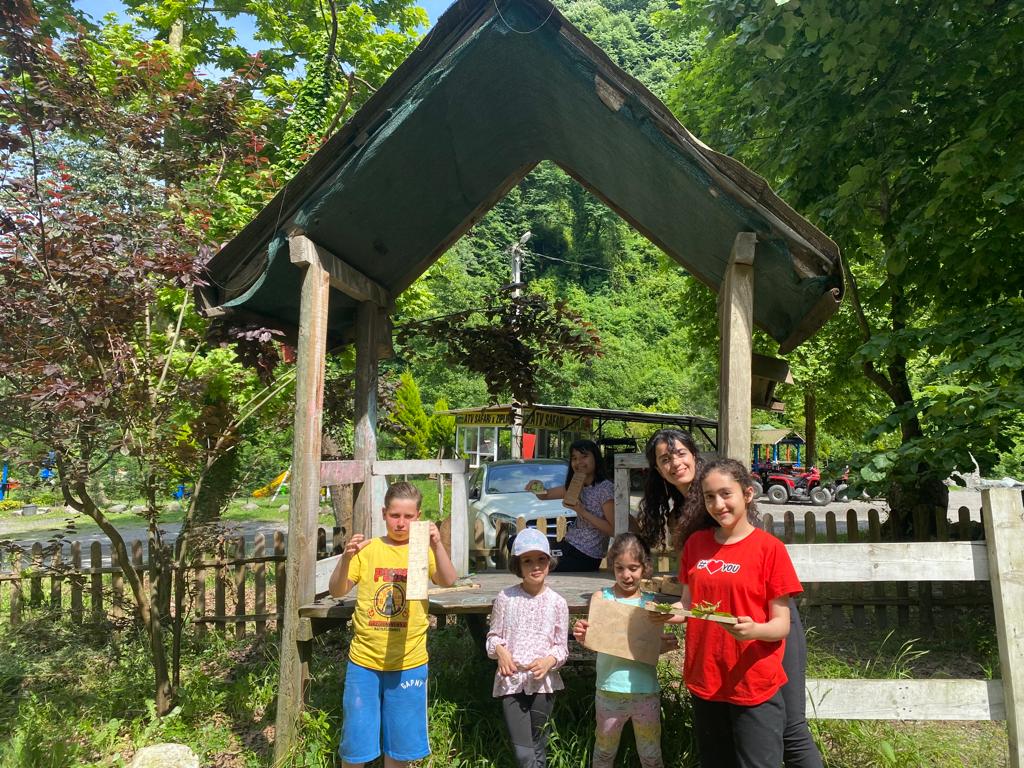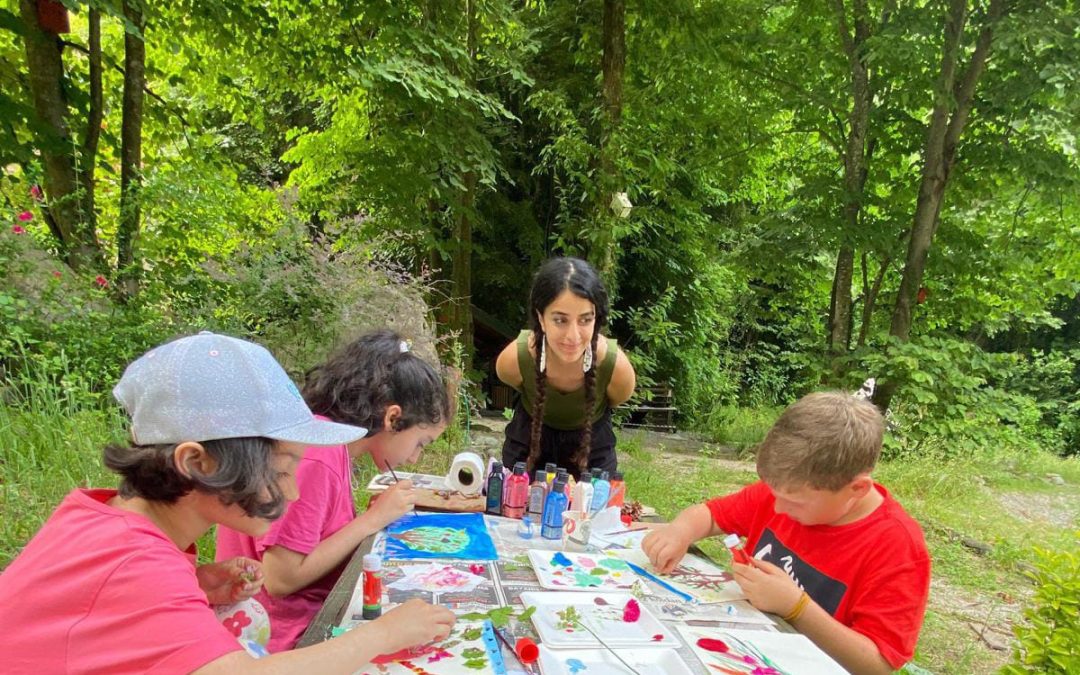Earthquake survivors’ healing: As our supporters and friends know, we have been dealing closely with the aftermath of the disaster since February 2023. Through Cansu’s and Sevilya’s connections in the region, we have been able to reach out to survivors who need a place of refuge. We can always offer them a room, warm meals, and a peaceful setting including our garden filled with flowers, fruits, and non-human friends of all kinds. They can sip their tea or coffee under the generous shade of daphne and persimmon trees or on the upper balcony enjoying views of the evergreen mountains. It is quiet and energizing and we’re proud that everyone who has spent even 1-2 nights gave us positive feedback. Sevilya has been in charge of fundraising (thanks to you, our amazing and generous friends, family, and friends’ friends, many of whom we have never met in person). With strength under stress and with great sensitivity, Sevilya makes sure that every dollar goes to the hands and homes in need. This is very comforting and touching for me.
This summer (1 June-16 July), we offered our first orman okulu (“forest school”), promoting resilience and recovery for children aged 6-12 whose families have been displaced from the earthquake zone. The impressive results we have seen so far have boosted our hope and motivated us to continue. Sevilya, assisted by our wonderful volunteers Eda and Hilal, targeted both the physical and mental well-being of the participants, offering the children many opportunities and exercises to express their emotions and physical sensations through art and trauma-informed activities.
Below are some selections from Sevilya’s impressions and observations:
I love how, even in these challenging times of their lives, children come together in such an environment, in a new place they’ve recently arrived at even if it is once a week. They get to expand their relationship with nature and continue to discover new things, bringing their explorations back to the class the following week. Most of them are interacting with nature to this extent for the first time, and I feel we’re just getting started 🙂 The excitement they feel when they’re about to meet the river in the forest in the last class is definitely worth seeing!
The children share their feelings and questions comfortably in the opening and closing circles each week. Their willingness to adopt and remind each other of the nature protection rules of our school in relation to non-human beings, even before I ask, shows the empathy they are developing towards other species.
I also enjoy our meal times. Sometimes, they share dishes from their hometowns and things they love. It’s great feedback for me when they develop ideas and present them; we can actually implement some of those ideas. In every gathering, one of the students suggests ideas like, “Should we do this here?” I’m excited to develop these workshops and meet them again.
—
Sevilya got back from her intense and challenging visit to her hometown of Hatay (5-12 August) with increased motivation to contribute to the reconstruction and healing efforts. We have also been in touch with several local and national NGOs interested in collaborating with us. The recovery efforts in the region are still not well organized or steady and although the news from the region is no longer making the headlines, the issues arising there are no less severe. True commitment and patience are the key requirements as the donations are no longer flowing or carefully tracked by the independent media.
Our “forest school” (we are looking for a better name—any suggestions?) is ready to welcome its new students on Thursday, August 17, and will be offered twice a week in the afternoons for this cohort, ending on September 3. We’ll keep its main structure the same with some updates, based on our weekly post-class team meetings as well as the feedback from children and their parents. We have two new (very enthusiastic!) volunteers on board, Sevval and Merve, who will accompany Sevilya. Moreover, four Syrian children from Hatay (aged 6-8) signed up, making our already diverse group even richer. Observing how the Turkish and Syrian children interact during the activities will likely offer us new insight into the continuing (during and after the Turkish elections) issues and debates about Syrian refugees, still a very delicate topic, to say the least, especially for us as the UmAy co-founders and all our volunteers.


أحدث التعليقات